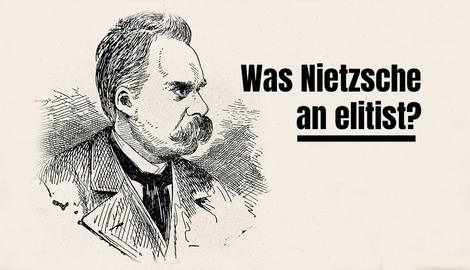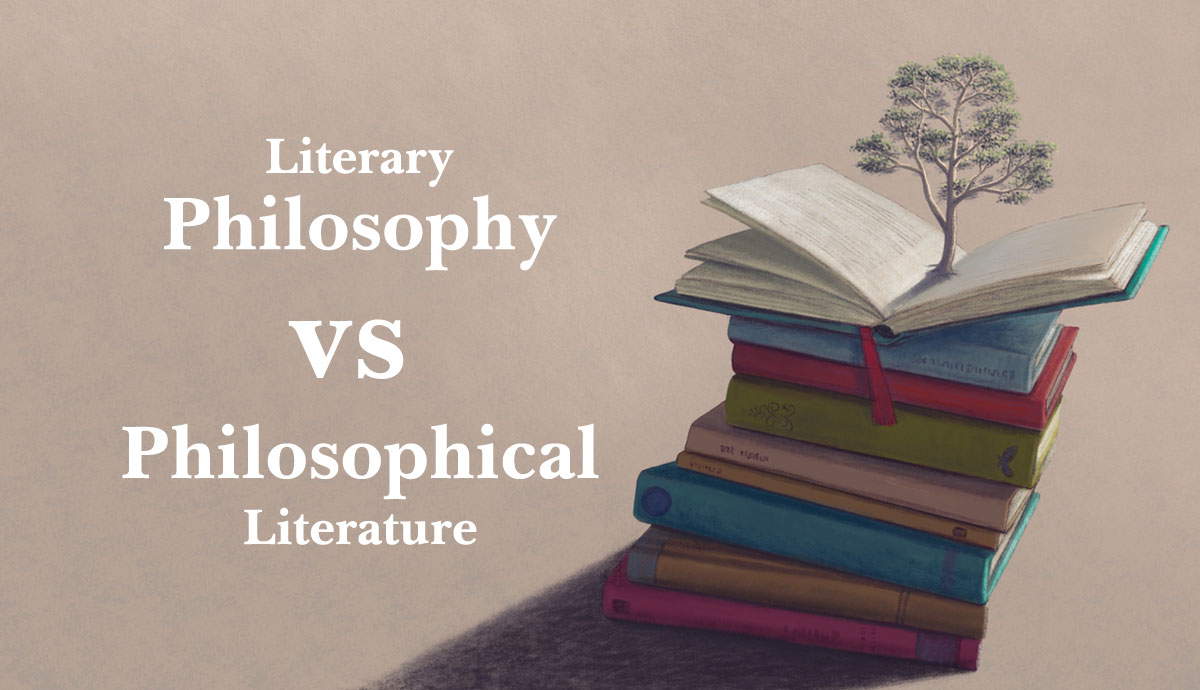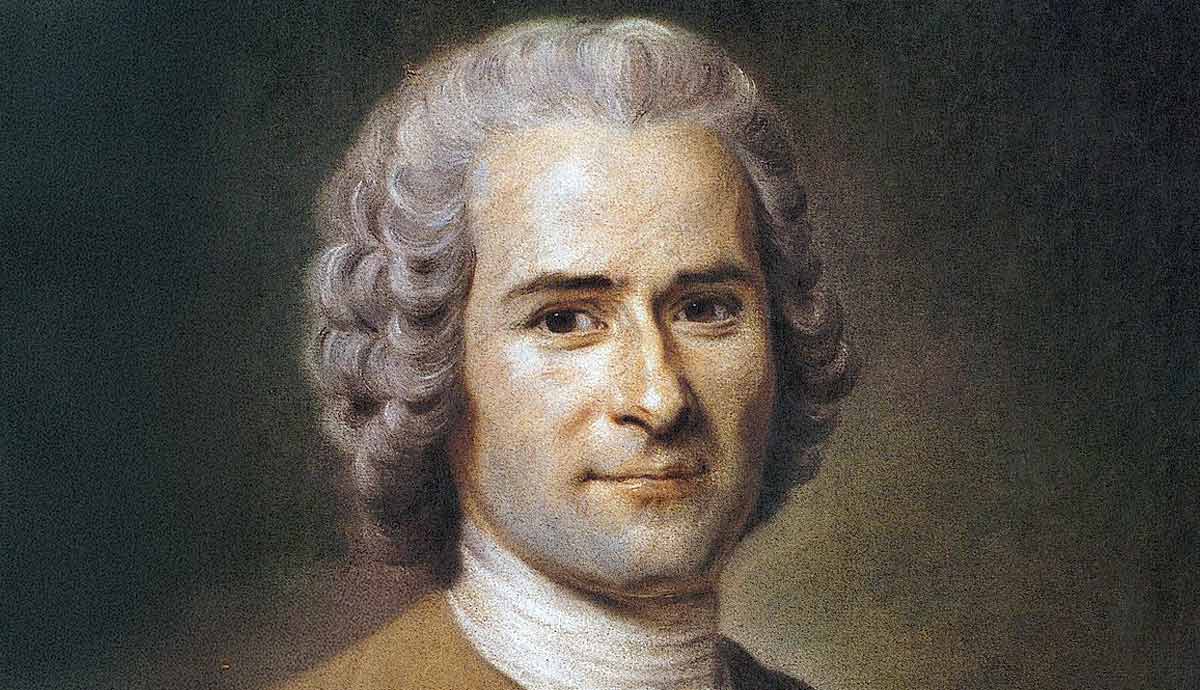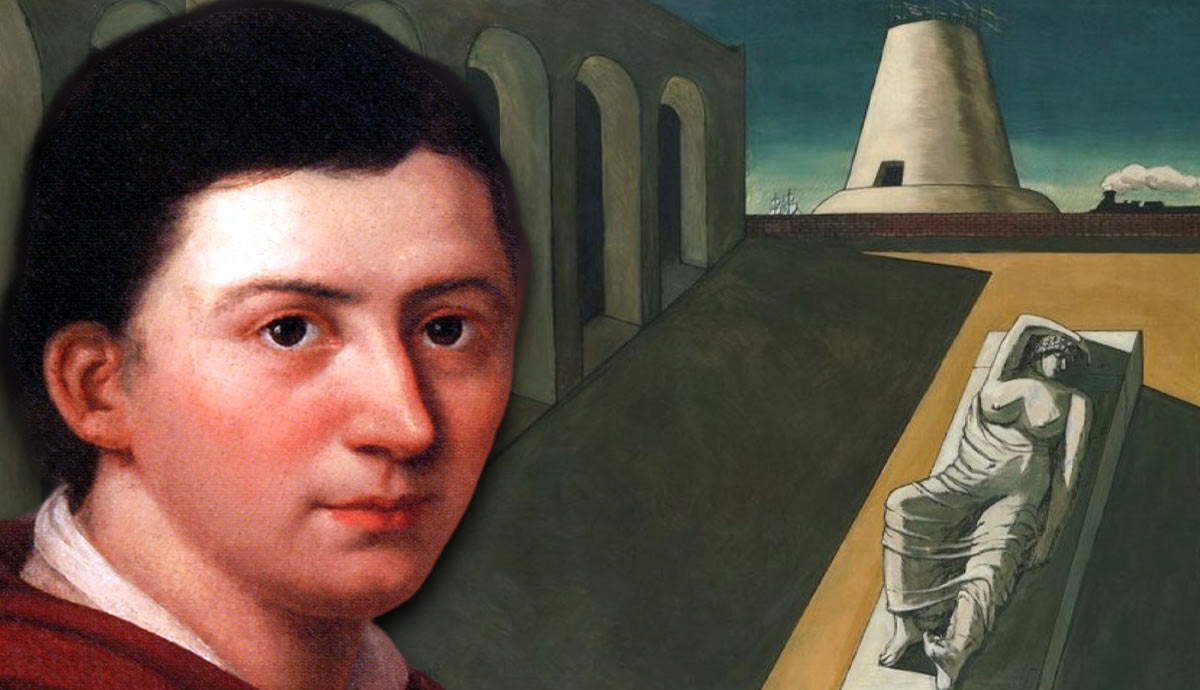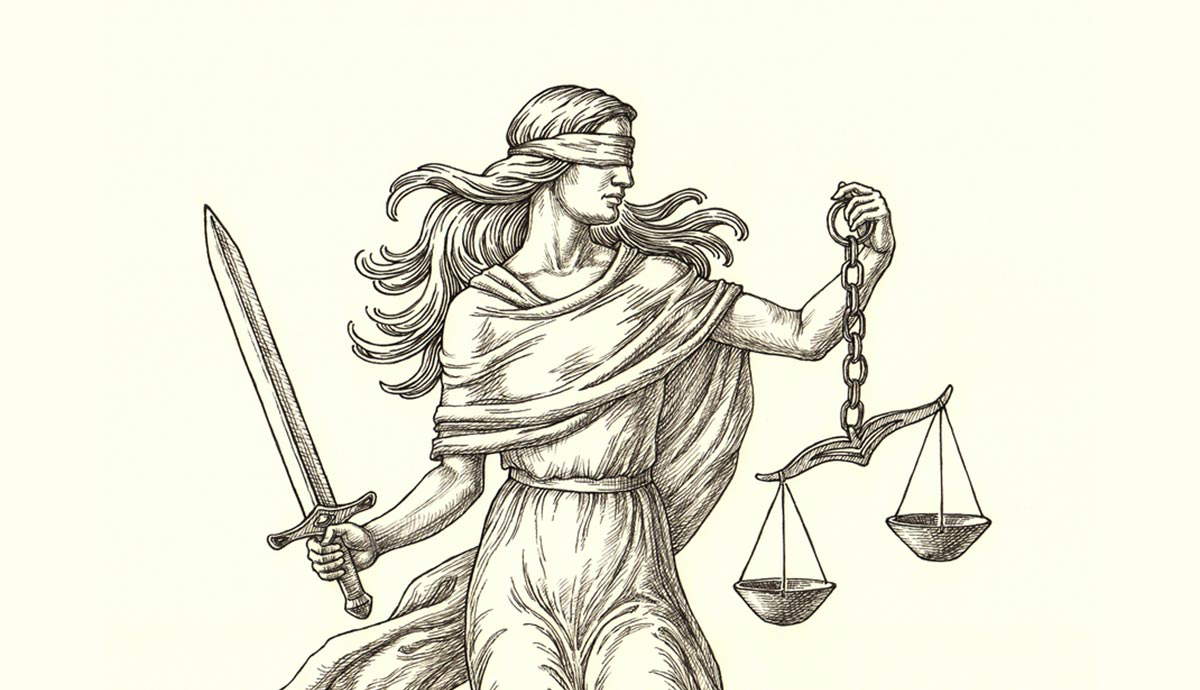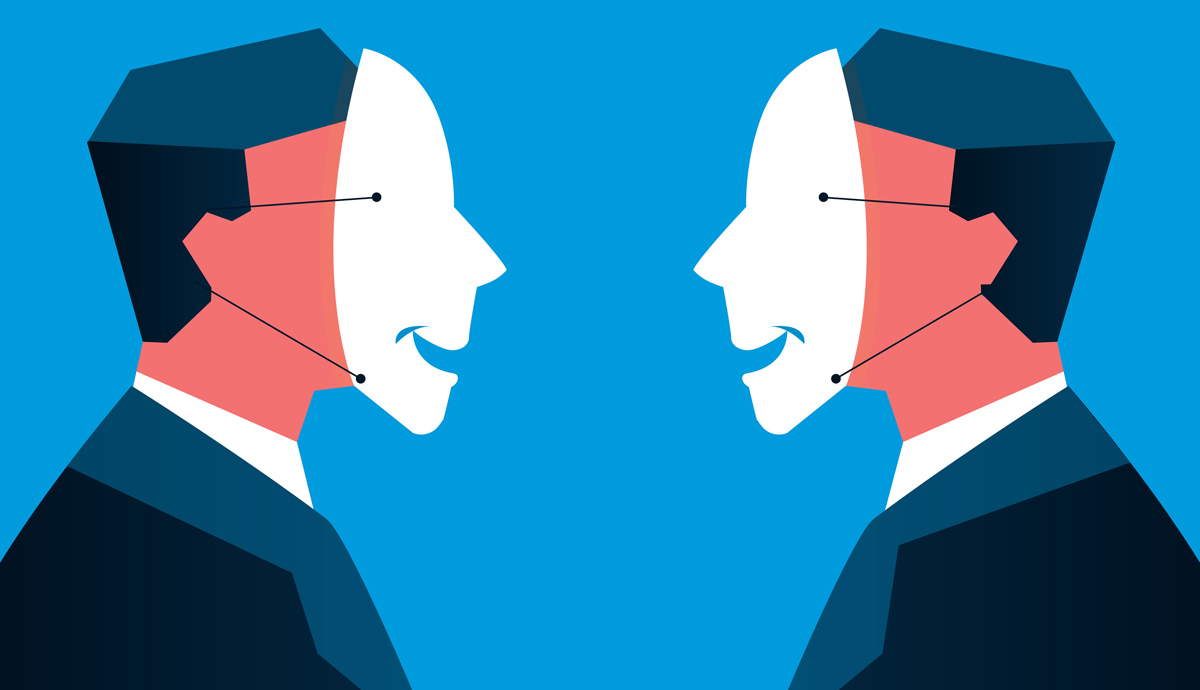
In a series of five public lectures, delivered while he was still a professor at Basel University, Nietzsche outlined his view that only a tiny elite of students should have access to education and that not only should the masses be denied an education but that any attempt to educate them would be dangerous. Perhaps surprisingly, Nietzsche’s lectures were an enormous success with the public, who packed out the lecture hall for all five lectures.
‘On the Future of our Educational Institutions’
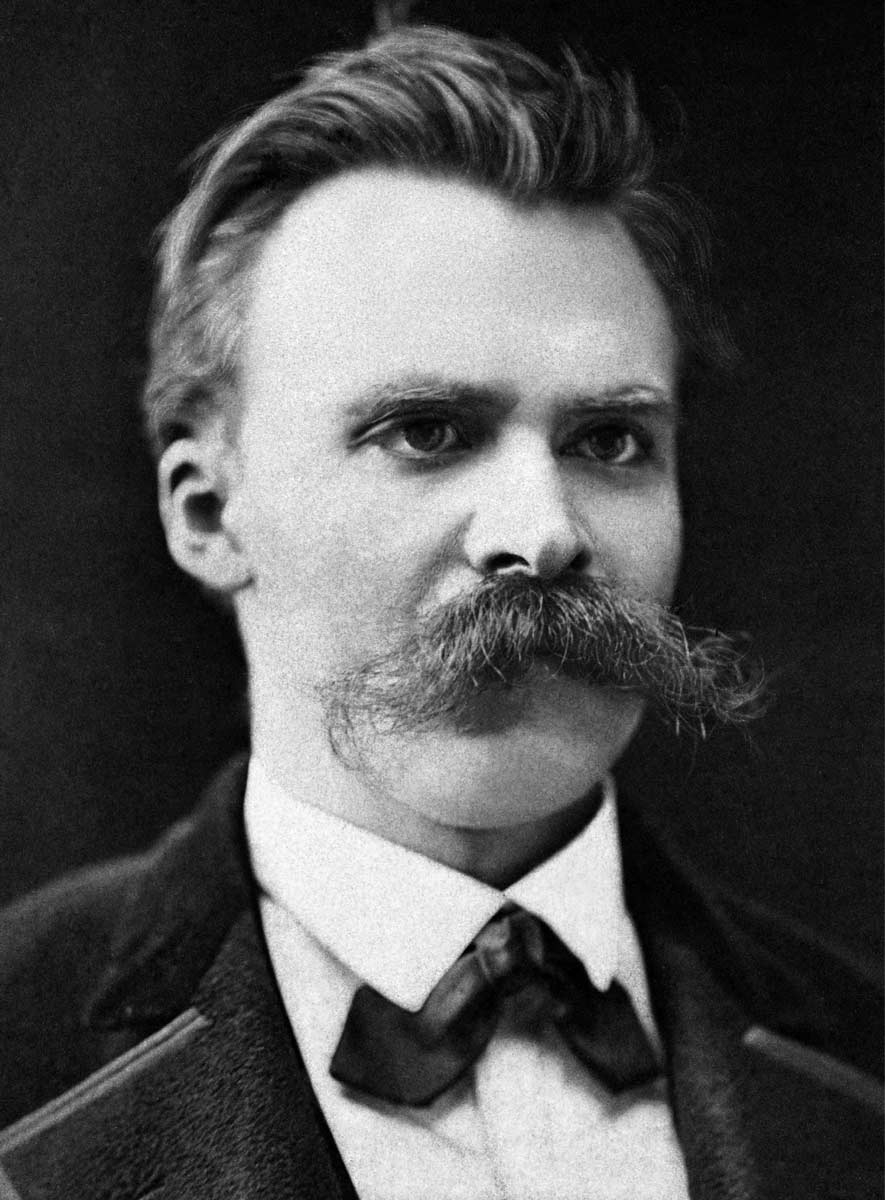
Nietzsche had strong opinions on education. In his view, a true education should be severely restricted to a few potential geniuses and only taught by geniuses. Rather mysteriously, he suggested that students should be guided by the hand of a genius whose other hand is outstretched back into the past to ‘the saving hand of the Greek genius.’
It is clear that Nietzsche had an extremely elitist view of education. It should also come as no surprise that Nietzsche never offered anything in the way of a realistic educational program. Indeed, while his criticisms of the state of education in Germany during his time are fairly easy to understand, it is sometimes difficult to grasp exactly what Nietzsche was driving at. The reason for this is that Nietzsche believed true education to be, in some ways, genuinely mysterious. That is, there are elements to education that are, he believed, difficult or impossible to explain or understand.
Much of what we know of Nietzsche’s view on education comes from five public lectures titled ‘On the Future of Our Educational Institutions,’ delivered between January and March 1872. His original plan was to publish these lectures, but he never got around to it. It could be that he simply thought the book would not sell well due to his extreme pessimism regarding the future of education. However, we know that his lectures were a tremendous success. Every year, a professor at Nietzsche’s university would deliver public lectures, and he seems to have been one of the most successful. The hall was consistently packed for all five nights.
Nietzsche’s lectures have now been published in English under the title Anti-Education. It is worth clarifying that Nietzsche was not against education per se but rather against the current state of education.
Putting on a Show
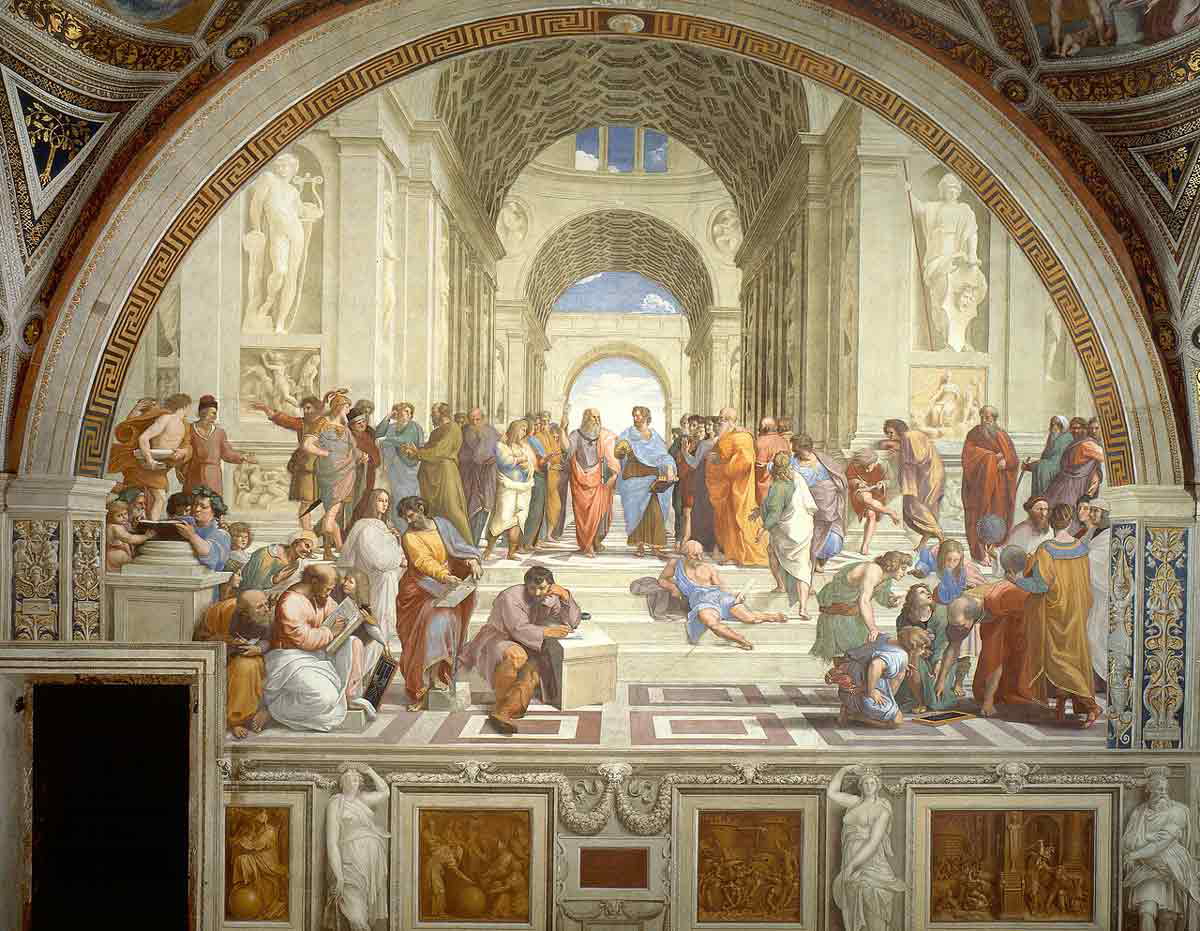
Perhaps one reason Nietzsche’s lectures were so successful with the public was that they were entertainingly presented as a dialogue between an old philosopher and a former disciple who was ‘overheard’ by Nietzsche and a friend. In previous years, other professors presented their work in a more typical style expected from a university lecture.
Dialogues were a rare but not unprecedented method for communicating philosophical ideas. Plato, of course, famously made use of dialogues. However, unlike Plato’s dialogues, which open with short scene-setting introductions that set up a frame story for the dialogue, Nietzsche used his entire first lecture to set up his frame story. In enormous detail, he accounts for how an imaginary dialogue came to be overheard by him and his friends.
Nietzsche’s frame story involves an old philosopher and his disciple. He recounts their conversation on education, which he supposedly overheard after stumbling across them in the forest. Of course, Nietzsche’s ideas on education are his own, but why he presented them this way is open to interpretation. One thing is certain: Nietzsche’s presentation was performative. That is, ideas were expressed and taught theatrically.
We can also note that Nietzsche’s teaching style was unusual largely because he chose to use a more common communication method in ancient times. Here, it is worth remembering that, rather mysteriously, Nietzsche believed that teachers ought to have a hand outstretched to the ancient Greek genius.
In his frame story, the old philosopher is presented as the kind of teacher Nietzsche wanted in the education system. Before considering what this character says, it is useful to note that Nietzsche describes him—and, by extension, all good teachers—as a ‘mystagogue.’
Mystagogue of Classical Education
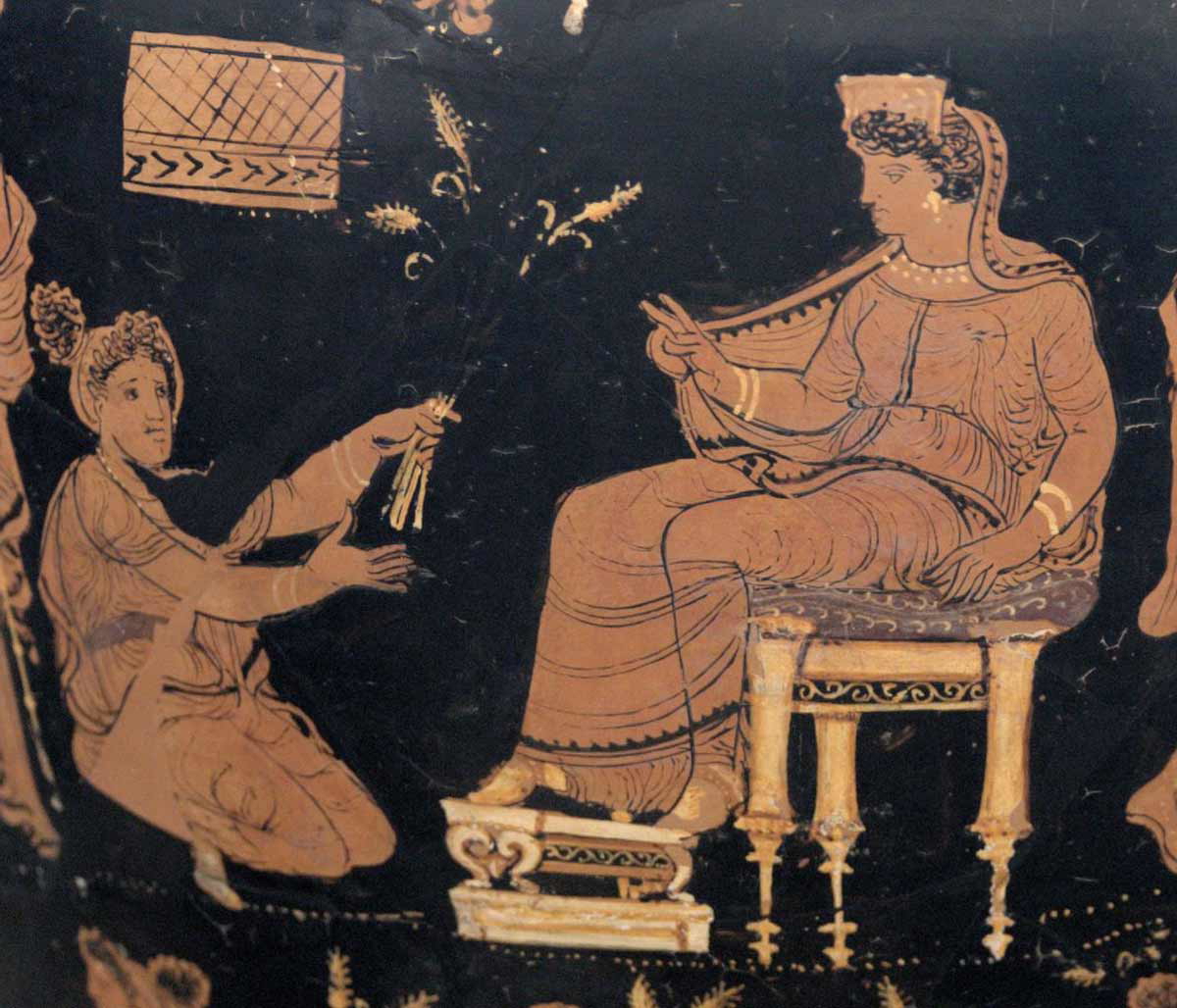
A ‘mystagogue’ is a teacher of mystical doctrines. Mysticism refers to a process of acquiring knowledge that is inaccessible to the intellect. Put simply, a mystic is someone who acquires knowledge from some kind of mysterious union or connection with a deity or perhaps the universe itself. A ‘mystery’ is something difficult or impossible to explain or understand. It is interesting to note here that Nietzsche has his old philosopher, whom he identifies as a ‘mystagogue,’ talk of educated students being ‘initiates.’ An initiate is usually someone admitted into a secret and elite group.
Putting this all together, we can see that what Nietzsche believed a true educator to be is something beyond normal human understanding. We can appreciate now why Nietzsche did not produce anything like a realistic, workable education program.
A better way to approach Nietzsche’s ideas on education is to look not at what a true education would look like but at what he believed was the purpose of education. We already know that Nietzsche held very elitist views and believed only those with the potential for genius ought to be given the opportunity of an education. Let us look at why Nietzsche thought such people ought to be educated. And then, possibly more importantly, why he thought those incapable of genius should not be educated. Even if we discover a good reason for educating elite students in a particular way, what reason would we have for not educating students of lesser ability?
Let us look first at what Nietzsche believed to be the purpose of education.
Nurturing Genius
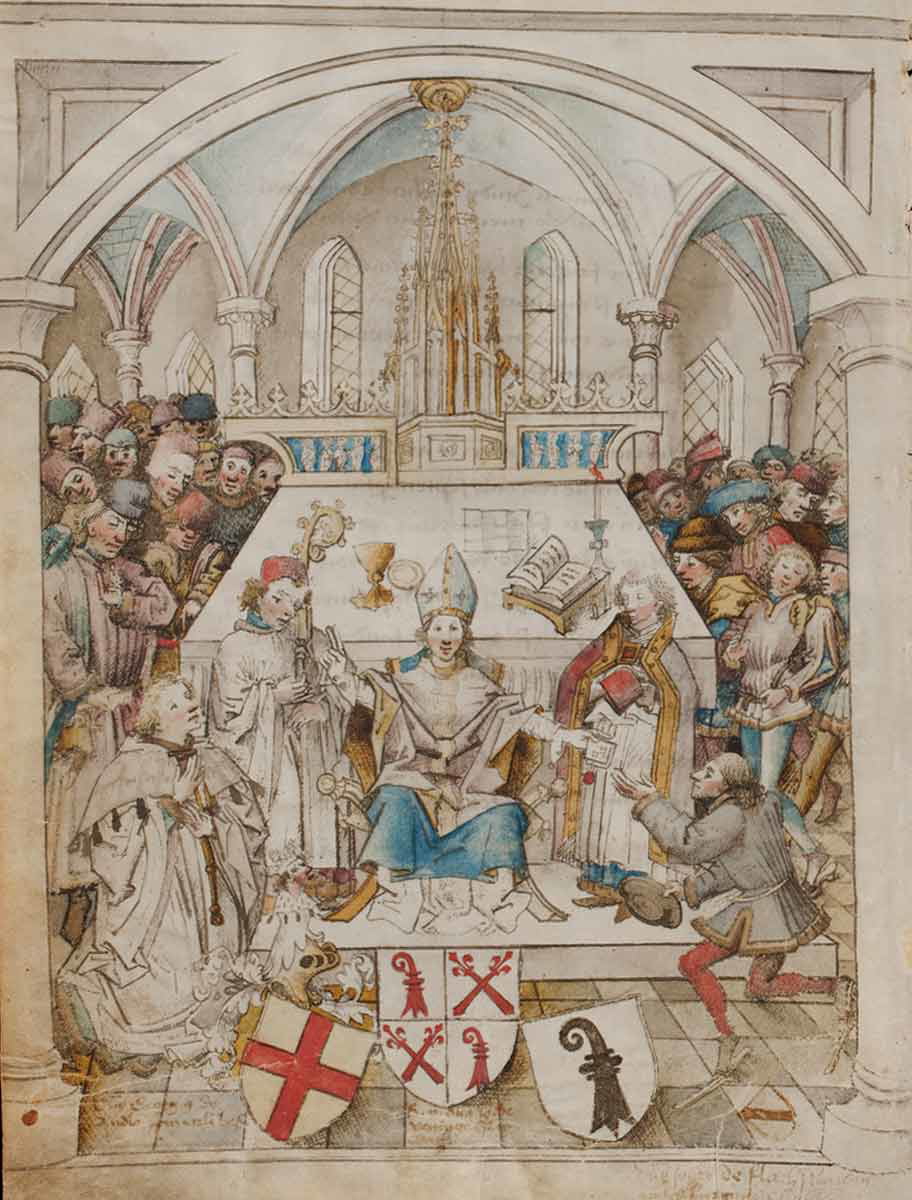
When Nietzsche delivered his lectures, plans were made to increase the number of educational institutions in Germany. This was something, as we might imagine, that Nietzsche strongly opposed. He believed that the purpose of education was to nurture natural talent and assist nascent geniuses in reaching their full potential. Such individuals are extremely rare. Rather than building new schools, time and money would be better spent seeking out and helping potential geniuses. Why? Because such students go on to become great individuals. Nietzsche, an elitist, believed that only great individuals could help countries become great. Accordingly, a state that seeks greatness for itself and its people ought to be concerned with nurturing great individuals.
In this light, let us examine something Nietzsche’s old philosopher character says about ‘the importance of the true popular education and its duty to the genius.’
“The genius is not actually born of culture or education: His origin is, as it were, metaphysical – his homeland is metaphysical. But for him to appear, to emerge from a people; to reflect as it were in its full array of colours the whole image of a people and its strengths; to reveal this people’s highest purpose in the symbolic essence of one individual and his enduring work, thereby linking his people to the eternal and liberating his people from the ever-changing sphere of the momentary – all of this genius can do only if it is ripened in the womb and nourished in the lap of his people’s culture. Without this sheltering, incubating home, there is no way for the genius ever to unfold his wings and take eternal flight. Instead he sadly, swiftly steals away like a stranger driven forth from an uninhabitable country into wintery desolation.”
A Shameless and Smug Elite
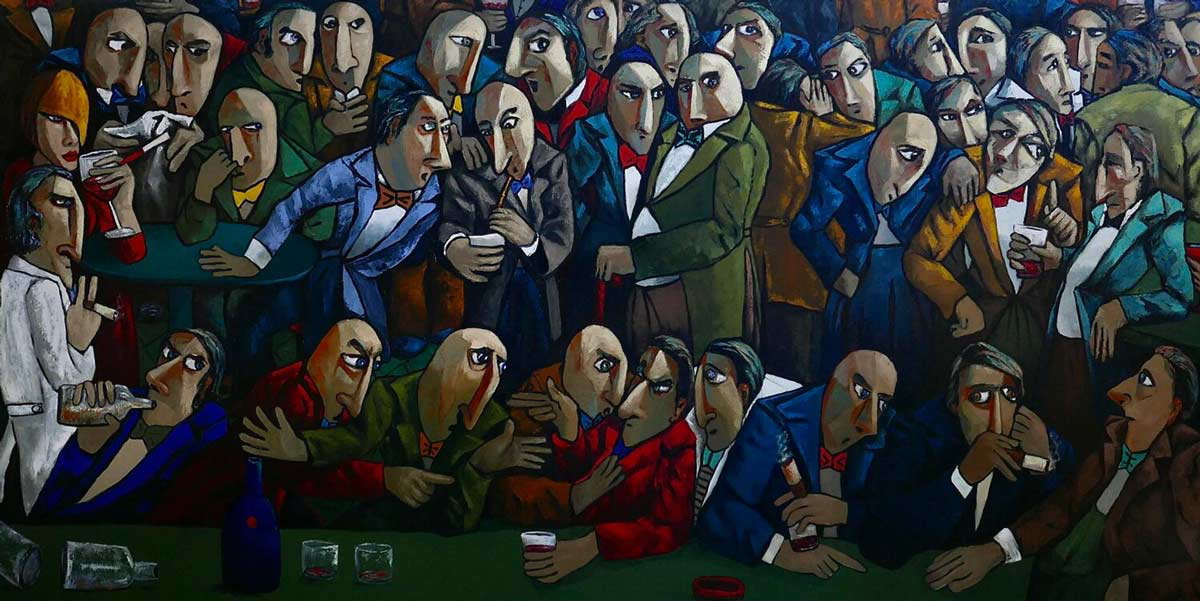
Nietzsche believed the purpose of education was to provide an environment in which nascent individuals could flourish and become great individuals. For less able students without the potential for genius, Nietzsche thought they should be denied an education.
We must remember here what Nietzsche considered students of lesser ability: anyone who fell short of potential genius. This included anyone with the scholastic talent to become doctors, lawyers, engineers, scientists, and so on.
Nietzsche claimed to have the interests of the State at heart. A flourishing State needs doctors, scientists, engineers, and even lawyers. The amount of potential geniuses Nietzsche had in mind would be nowhere near enough to fill all these necessary roles. It is important to note that Nietzsche was not arguing that students with the potential to take on these roles should be denied training. What he was saying was that they should not consider themselves to be ‘educated.’ Why?
Nietzsche believed that the demand for more educational institutions to teach an increasing number of students necessarily led to people without talent and genius attaining teaching positions. Put simply, the demand for teachers was outstripping the supply of geniuses capable of delivering a true education.
The problem is that these ‘teachers’ are the product themselves of a flawed system. According to Nietzsche, they believe in being educated and capable of educating others. The result is that thousands of students are graduating each year with the false impression that they have been educated. They then use their qualifications to attain jobs and positions of power in Germany. The upshot is that the State is not being run by great individuals but, according to Nietzsche, by a shameless and smug elite with a false sense of their own intellectual and cultural superiority.
Was Nietzsche Being Serious About Anti-Education?
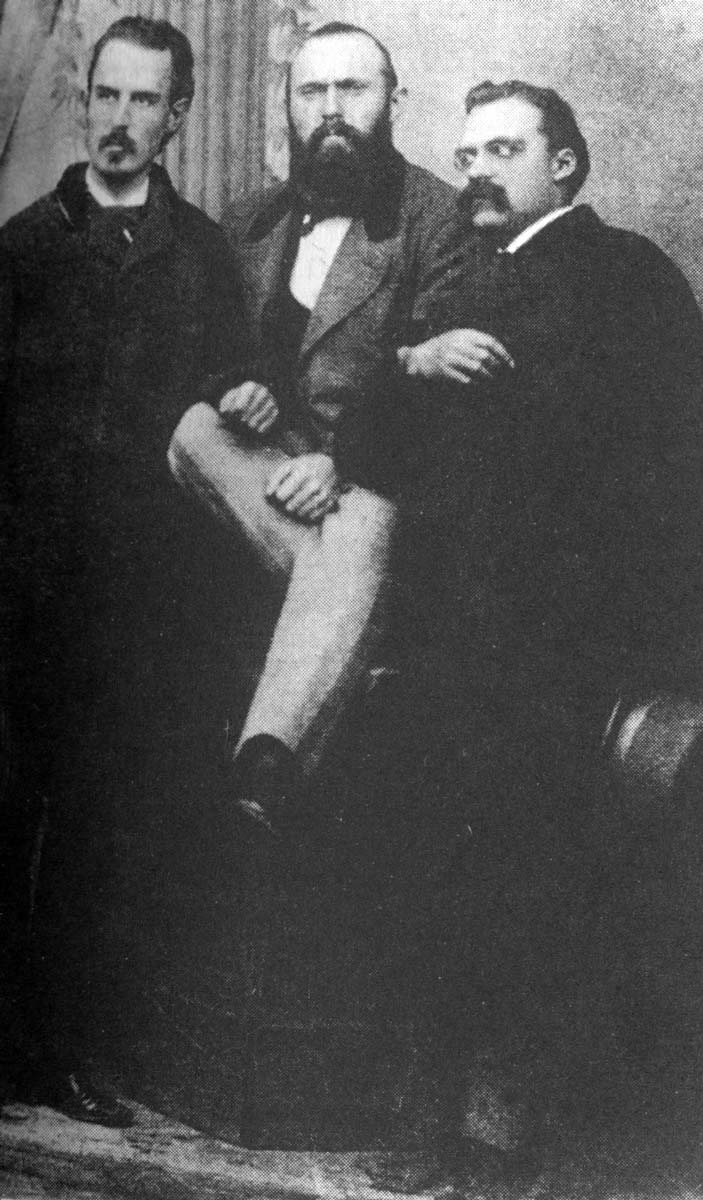
It is unlikely that Nietzsche believed his lectures would lead to an overhaul of the German educational system. He also would have known that his mysterious allusions to true teachers as ‘mystagogues of classical education’ were hardly conducive to the practical process of creating an education program. How, then, should we approach this text?
With Nietzsche’s extreme ideas, it is sometimes difficult to tell how serious he is. Scholars are frequently divided over how certain passages should be interpreted. It is one of the reasons that Nietzsche has been so popular with thinkers from all sorts of different backgrounds and political leanings. He expects readers to think for themselves and find the value in his ideas on their own. In this light, consider the following from his second lecture:
“[Teachers] treat every student as being capable of literature, as allowed to have opinions about the most serious people and things. In contrast, true education will strive with all its might precisely to suppress this ridiculous claim to independence of judgement on the part of the young person, imposing instead strict obedience to the sceptre of the genius.”
Should true education strive to suppress students’ independence of judgement? Did Nietzsche seriously believe this?
Nietzsche was certainly an elitist. He believed only a few individuals are capable of greatness and that the State depends upon these people for greatness. As such, he thought the utmost effort should be made to nurture geniuses and eliminate any obstacle that might prevent their emergence. One such obstacle is smug and shameless people who mistakenly consider themselves to be educated.
While most of us would agree that people ought not to leave education under this false impression, how many would say that such people should never be offered an education in the first place?
